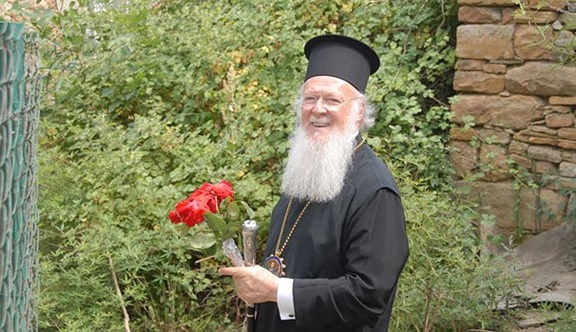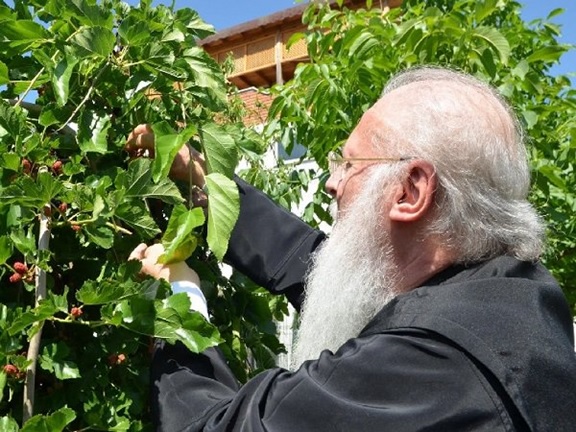The Environmental Activities of the Ecumenical Patriarchate
15 February 2019Following the rapid industrial and technological explosion which has brought significant changes to the planet and has created a large number of social and environmental problems, the Ecumenical Patriarch has moved into action in an effort to provide a solution to the troubles afflicting creation. The most important event which triggered the activities of the Ecumenical Patriarchate occurred in April 1986, the explosion at the Chernobyl nuclear installation which caused irreparable damage to the environment and to people.

The pioneer in the ecological activities was Patriarch Dimitrios I and he was followed by his successor, Patriarch Bartholomew I, the latter being known as ‘The green Patriarch’ for his important contribution to environmental issues. He has made the protection of the environment a priority among the aims of the Ecumenical Patriarchate. The contribution of the Ecumenical Patriarchate is important because it has succeeded in linking efforts to save the environment with efforts to save human souls, requiring the faithful to show greater interest in ecological matters. Finally, the Patriarchate has worked with environmental organizations such as the World Wildlife Fund in organizing events providing updates on environmental information. In addition, ecological symposia and seminars have been organized under the aegis of the patriarchate, the aim of which has been to find solutions to ecological imbalances and, at the same time, to send out messages about the environment regarding the Day of the Protection of the Natural Environment.
Messages from the Ecumenical Patriarchate concerning September 1
After establishing September 1 annually as a day of prayer for and protection of the environment, the Ecumenical Patriarchate began to publish messages every year, the aim being to demonstrate the seriousness and dangerousness of the ecological crisis. Through the ecumenical messages, an attempt was made to make the faithful more sensitive by cultivating a sense of ecological awareness. This would contribute to a change of life-style, which, in turn, would head off the ecological catastrophe which is threatening nature.

Message from His All-Holiness Ecumenical Patriarch Dimitrios I on the Day of the Protection of the Environment (1 September, 1989).
On 1 September, 1989, the first such message from Patriarch Dimitrios I was published. Part of the text refers to the ‘merciless devastation and destruction of the natural environment perpetrated by us people, with the result that the very survival of the natural world created by God is under threat’. It is clear from this that the Ecumenical Patriarch was concerned over the effects of environmental problems on the continuing life of the natural world. In the message, mention is made of the responsibility we have for the ecological crisis, caused by the violation of the commandment given to us by God that we should ‘have dominion over the earth’. In this way, we’ve created irreparable damage to nature, one of God’s creations. Besides, he also emphasizes that humankind is God’s most perfect creation, since we combine the material world with that of the spirit and that our prime concern is bringing creation back to God with the aim of saving nature and other people from corruption and sin.
In concluding his message, Patriarch Dimitrios I called upon all the faithful to embrace September 1 as a day of prayer and intercession for the creation and to its Creator. He also urges them, ‘to take, immediately, any and every necessary action for the protection and salvation of the natural creation’, because it is an obligation of all the faithful to protect and preserve the balances in nature, of which we are guests.
In conclusion, Patriarch Dimitrios’ message, by urging the faithful to help in all feasible ways, makes clear both the position of the Ecumenical Patriarchate regarding the ecological issue, and also the effort being made to bring an end to the destruction of nature. Apart from encouraging the faithful, the words of the Patriarch help provide them with the strength and will to save nature- and themselves, as well- from sin and decay.






